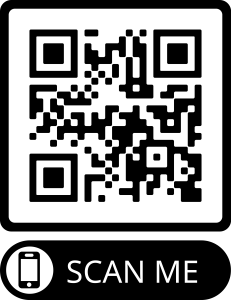



Building Relationships is Key to B2B Success
A key factor in B2B relationship-building is understanding the specific needs and challenges of a business partner. This requires open communication, industry knowledge, and a solutions-oriented approach. Businesses that position themselves as problem solvers rather than just vendors create stronger connections and deeper customer loyalty. Personalizing interactions, offering tailored solutions, and demonstrating expertise in a given field help foster trust and credibility.
Networking also plays a critical role in B2B success. Attending industry conferences, trade shows, and networking events allows businesses to establish connections, share insights, and explore potential collaborations. Additionally, maintaining relationships through consistent follow-ups, personalized outreach, and customer service excellence ensures that partnerships remain strong over time.

In the competitive world of business-to-business (B2B) transactions, success extends far beyond simply selling a product or service. While delivering quality offerings is important, the foundation of sustainable growth in the B2B sector lies in fostering strong, long-term relationships with clients, suppliers, and industry partners. Unlike business-to-consumer (B2C) transactions, where purchases are often driven by impulse or short-term needs, B2B engagements are built on trust, credibility, and ongoing collaboration.
A single B2B deal often involves multiple stakeholders, extended decision-making processes, and complex negotiations that require businesses to prove their value consistently. Companies that focus on establishing meaningful connections, understanding their partners’ needs, and maintaining open communication stand a far greater chance of securing repeat business, referrals, and long-term loyalty. These relationships not only foster financial success but also create opportunities for strategic alliances, joint ventures, and industry innovations that can drive mutual growth.
Hiring the Ideal Employee
Analysis and Improvement
In any business or project, analysis and improvement are essential for sustained growth, efficiency, and success. By evaluating performance, identifying strengths and weaknesses, and making data-driven adjustments, organizations can optimize operations, enhance customer experiences, and achieve better results.
The process begins with data collection and evaluation. Whether assessing sales figures, marketing campaign performance, user behavior, or operational workflows, analyzing key metrics provides valuable insights into what is working and what needs improvement. Businesses can use various tools, such as analytics software, customer feedback, and performance reports, to gather relevant data and pinpoint areas requiring attention.
Once the analysis phase is complete, the next step is identifying actionable improvements. This may involve refining marketing strategies, enhancing product quality, optimizing workflows, or upgrading technology systems. Continuous improvement requires businesses to be agile and adaptable, ensuring they can adjust to changing market trends and consumer demands.
Implementation of changes should be followed by ongoing monitoring and optimization. Regular reviews allow businesses to measure the impact of their improvements and make necessary refinements. This iterative process fosters innovation, efficiency, and competitive advantage.
Focused Proficiency
In today’s competitive landscape, focused proficiency is essential for individuals and businesses striving for excellence in their respective fields. Rather than spreading efforts across multiple disciplines, developing deep expertise in a specific area allows for greater efficiency, higher quality outcomes, and stronger industry credibility.
For professionals, focused proficiency means mastering a particular skill set or domain, making them valuable assets in the job market. Whether it’s technical expertise, industry knowledge, or specialized problem-solving abilities, individuals with a refined focus often achieve higher career growth, better job stability, and increased demand for their skills. Employers seek specialists who bring precision, efficiency, and innovation to their roles, enabling businesses to maintain a competitive edge.
In the business world, companies that emphasize focused proficiency in their services or products often stand out. Instead of trying to cater to all markets, businesses that refine their offerings around a niche audience or specific expertise tend to build stronger brand recognition, attract loyal customers, and deliver superior value. This approach not only increases operational efficiency but also enhances customer satisfaction, as businesses can offer tailored solutions backed by deep industry knowledge.
Business Referrals
Business referrals are one of the most powerful ways to generate leads, build trust, and drive long-term success. Unlike traditional advertising, referrals come from trusted sources—such as satisfied customers, industry partners, or professional networks—which makes them highly effective in converting prospects into loyal clients.
One of the biggest advantages of business referrals is the built-in credibility they provide. When a satisfied customer or a business partner recommends a company, it carries more weight than a generic advertisement. People are more likely to trust a service or product that has been personally endorsed by someone they know, leading to higher conversion rates and stronger customer loyalty.
For businesses, creating a structured referral program can encourage existing customers to spread the word. Offering incentives, discounts, or exclusive rewards for successful referrals motivates clients to recommend a brand to others. Additionally, building strong relationships with industry professionals and complementary businesses can lead to strategic referral partnerships, where businesses refer clients to each other for mutual benefit.

Millennials Now Dominate the Workforce
Extended Purchase Timelines Are Common
In many industries, extended purchase timelines are a standard part of consumer decision-making, especially for high-value or long-term investment products. Unlike impulse buys, these purchases require extensive research, price comparisons, and consideration of alternatives before consumers commit. This behavior is particularly common in sectors such as real estate, automobiles, higher education, financial planning, and luxury goods, where buyers evaluate options carefully, seek expert advice, and assess affordability before finalizing a purchase. Factors such as budgeting constraints, evolving needs, and seasonal promotions can also influence the length of the buying cycle, making patience and strategic marketing essential for businesses targeting these customers.
To effectively engage consumers with extended purchase timelines, businesses should focus on nurturing leads through personalized marketing efforts.




